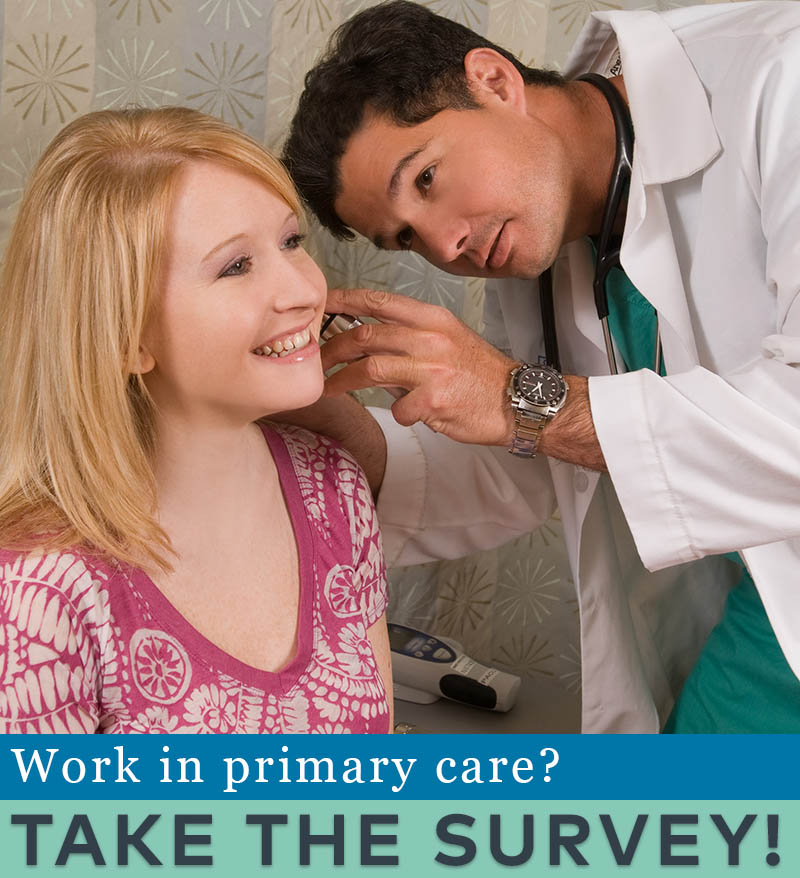You are looking at an archived version of our site. Please visit thepcc.org for a fresh, new experience!
You are here: Array » Spotlight on Changes i ...
Spotlight on Changes in Primary Care
Change has been a constant for primary care during the COVID-19 pandemic – for better or for worse. Reforms that the primary care community had been slowly and diligently pushing for over many years or longer have been accelerated at warp speed.
At the onset of the pandemic, stay-at-home orders drastically reduced primary care income, which is largely still dependent on face-to-face visits. Primary care pivoted by quickly offering telehealth and telephonic visits and even offering consultations to patients in parking lots. Practices also took drastic measures, including laying off or furloughing staff or even closing their doors temporarily or permanently. Some health plans stepped in with financial measures to help small and independent practices stay in business.
Among the health plans that recently took these and other types of emergency measures:
- Blue Cross Blue Shield of North Carolina announced Accelerate to Value, a program to help independently owned primary care physician practices remain financially viable and move to value-based care. The program includes financial support through payments to participating practices based on 2019 revenue to improve their financial stability in 2020 and 2021. Practices in the program must also commit to joining Blue Cross NC’s value-based care program in which practices will be eligible, beginning in 2022, to receive fixed monthly payments for meeting the health needs of their entire patient population, replacing the fee-for-service payment method.
- Blue Shield of California announced that it is providing up to $200 million in direct support to healthcare providers and hospitals through financing guarantees, advance payments, and restructuring of contracts. Blue Shield is working with two financial institutions to help providers with guaranteed loans and to make advance payments to them on anticipated healthcare costs. The plan is offering favorable repayment terms to help providers get through the subsequent months.
- Blue Cross Blue Shield of Massachusetts is rolling out a program with three elements - a patient-based payment model, robust incentives for efficiency and quality performance, and an immediate support payment for practices that sign on. The company says the program offers ”a compelling response to the impact of COVID-19 on independent primary care.”
The PCC is recognizing these and other plans in its Health Plan Honor Roll. This web page lists plans that are offering leading strategies, particularly advance payments, to help practices stay afloat during this crisis. The Honor Roll also recognizes plans that are pursuing other important strategies, including adequately reimbursing audio-only calls and paying for telehealth visits at the same rate as in-person visits. PCC is calling on other payers to follow the lead of these plans.
The PCC’s July webinar – The Secret Sauce: How Some Primary Care Practices Are Surviving COVID-19 – took a deeper dive to shine a light on partnerships between health plans and practices that helped primary care weather the pandemic. The webinar recording (available in full for free) highlights payment changes, leveraging their PCMH care management and IT infrastructure, leadership and governance, and other factors. The plans and practices featured are: Blue Cross Blue Shield of Michigan; Medical Network One; Capital District Physicians’ Health Plan, Inc. (CDPHP); and Lansingburgh Family Medicine (Troy, N.Y.).
Health plans that take such steps are bound to be in good standing with major purchasers that understand the importance of primary care as the foundation for a high-value health system. In California, the Pacific Business Group on Health has partnered with the California Medical Association to push the legislature to require health plans to use unspent premiums already collected from employers and consumers to pay primary care providers emergency prospective payments for 2020 and 2021. These prospective payments would serve as a lifeline to primary care providers who have suffered a serious loss of revenue during the COVID-19 pandemic and may be forced to close their practices or be acquired by large health systems.
Of course, nobody in primary care would have chosen to go through this crisis. But all actors in primary care – health plans, practices, clinicians, employers, patients, policy makers – can choose to take advantage of the opportunities this crisis presents. Rather than pick up the pieces that remain and try to put them together to make the system “function” as it had before, it is time to create something new out of the ashes.
PCC plans to examine these and other cutting-edge trends at its Virtual Annual Conference Nov. 30-Dec. 1. We hope you will join us at this important event.
Republished from the July 2020 Executive Member Update (monthly e-newsletter)

Are you a physician, nurse practitioner, or PA working in primary care?
Help PCC and the Larry A. Green Center track how your practice is responding to the COVID-19 outbreak by completing the Green Center's occasional survey.
The regular surveys are no longer being conducted.
COVID-19 Updates
May 9, 2022 | Primary Care Collaborative
April 19, 2022 | Primary Care Collaborative
April 19, 2022 | Primary Care Collaborative
March 7, 2022 | STAT
February 27, 2022
- 1 of 39
- next ›

Recent News
August 16, 2024
August 12, 2024
July 16, 2024
May webinar highlights: “The Commercial Market: Alternative Payment Models for Primary Care” Nate Murray explains w… https://t.co/KX9Wi2w6oY —
2 years 8 months ago
@CMSinnovates’ primary care strategy is rooted in a 2021 @theNASEM’s report which called #primarycare “foundational… https://t.co/glbPxvCysg —
2 years 8 months ago
@CMSinnovates has a new #primarycare strategy, envisioning “ACO-based primary care model tests that may focus on pr… https://t.co/aJGF1z411l —
2 years 8 months ago
- Page 1
- ››
Secondary menu
Copyright © 2024 Primary Care Collaborative




